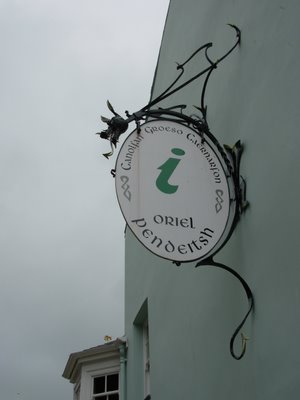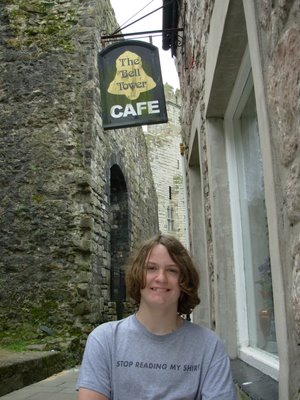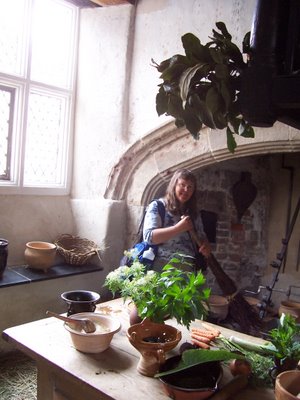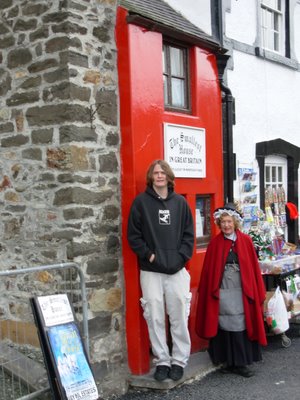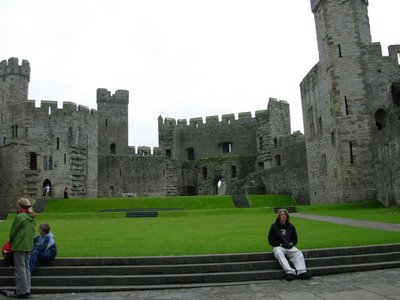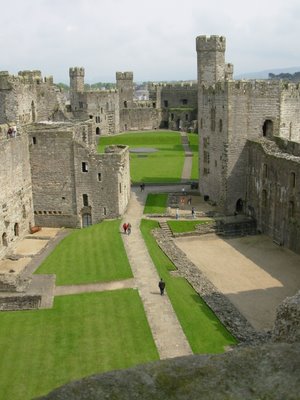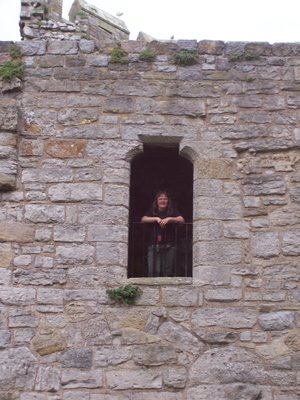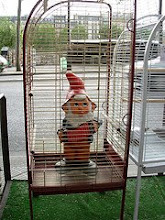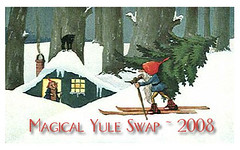Everything's Connected

We live in a small town. Not so teensy that I know everyone in town and all their secrets. But small enough so that you really want to assume that the person you treat kindly or no today will most likely be someone you'll bump into another day. It makes you think twice before you flip someone off in traffic. Or gossip with someone you don't know - they might just be brother-in-law of the person you're gossiping about. In other words, small enough to make most folks woven together in some way or another.
I generally think of this as a good thing. It means you have to treat people like people and not strangers in a crowd. And yet, even if it's still a good thing, even if it's more authentic then the more autonomous life of a larger community there are times when it makes life more difficult. Like, when tragedy comes to town. This weekend our community was slammed with the deaths of three teenagers on the same day. A beautiful young woman lost her battle with leukemia and two young men experimented with drugs and paid with their lives.
I'm struggling with these losses. I haven't known what to say or who to say it to or even if I have a right to say anything at all. It's not like I knew any of these young people well. I only remember one of them personally. And yet because this is a small town, all three of the kids were interwoven into our daily lives in one way or another. My husband works with the father of the girl. Both the boys are.... were in William's P.E. class. One of the boys was also in the crowd of neighbor kids that William has known since he was pre-school age. He wasn't one of William's closer friends, but he hung out with the same kids that William calls his best friends, and they also hung out together in the same snowboarding crowd. The boy's brother is one of the kids William knows well on the football team. As parents we all sit on the bleachers together each autumn. And my best friend in town, her older teen knew the kids and we both know that this tragedy could have easily included her son as he has been experimenting with dangerous behaviors.
All these things do not qualify us or bring us into the circle of close friends and family. We are but bystanders to this tragedy in the greater scheme of things. And yet those tiny threads that connect us make it difficult to push the tragedy to the side. The entire town is suffused with the sadness and pain of the situation. Reminders are everywhere. Communally there are flowers, balloons, signs, gatherings of teenagers or unexpected lack of them where they usually congregate, announcements in the paper, a somberness to the way everyone goes about their jobs. The songs on the radio seem to be chosen sympathetically. Personally kids come and go at odd hours of the day and night at our house as parents and teachers allow the teens the need to break out of their ordinary routines. William and his friends are filling the printer with photos of their lost friends, the computers are clicking away on the teens' My Space pages, football schedules change, and the phone rings and rings.
Although there's no way to know how much the sadness stems from the very immediate tragedy and how much comes from triggering past grief, obviously a big part of my difficulty with everything comes from my own personal loss. A half dozen times in the last couple of days I have stood opposite one or more people when the inevitable comment is used:
"I can't imagine what the families are going through!"
That's the key to how much this feels like being personally broadsided by a truck. Or at least a half dozen cyclists. I can imagine what the families are going through. No. That's not right. I don't have to imagine anything. I know what the families are going through. I know what it feels like to first hear The News. I know what if feels like not to be able to eat, sleep, speak, to barely even manage to breathe. I know how that first day feels a million hours long. I know what the days afterward feel like, what the surreal experience of making funeral arrangements are like, what the weeks and months and years to come will be like for these families.
These tragedies, which I can hold no legitimate claim to, still pulls me back towards the intensity of my own pain, pain which I've struggled with carrying as gracefully as possible, struggled to keep it from crushing the air out of me. For the last several days I feel like I'm not getting enough air. I'm sighing. I'm bursting into tears. It's a small echo of the real thing, but it's got all the details straight.
The harder part of this isn't about me though, it's about William. William was only ten years old when Joshua died. He processed his brother's death in a completely different way then the rest of the family, because he was too young to understand it in the way we did. In almost all ways, William's age allowed him to feel the loss - as sadness, anger, confusion - but not to think about his feelings. He couldn't take them out and look at them from different perspectives, he couldn't analyze them, he couldn't frame any questions about them. He could only go along for the ride.
When he got off the phone from hearing the news on Sunday morning, he stood in front of me to share what he had been told. He towered over where I was sitting, all 6'3" of him, a young tree of a man. His eyes blinked furiously, his hands clenched and unclenched. In between details he simply stood quietly, just this edge of shaking. And I knew, somehow I knew what was happening underneath. In that moment, he was thinking about his brother's death. Not just feeling it. For the first time, he was able to think about it.
I knew that this would happen, this day would come. I've watched my kids process other sorts of losses over and over as they grew older. I didn't expect it to be so dramatic though, to come swooping down in a single moment. I know that it's necessary, and healthy, and important for William to be able to revisit this loss and find a new place for it in his life with each developmental stage. And yet watching this knowledge sink into him, seeing it seep into his expression, my first impulse was to rip this "necessity" away from him before he could recognize it for what it was and run out the door. I wanted to run far away, find a high cliff, and fling this pain off the edge into a canyon deep enough that it would never find it's way back.
Of course, instead, I sat there and watched my son own this new responsibility of life. I won't be running away from anything at all. I'll be here, keeping an eye on the kids as they muddle through this into the future. I'll muddle through it myself. I'll keep busy or allow myself to do nothing, if that's all I can manage for a little while. I'll keep juggling the past and the present until a rhythm reappears. I'm fortunate in that I "know" one more thing from first hand experience - that while time may not completely heal all wounds, it at least helps one find a new way to balance the load.


